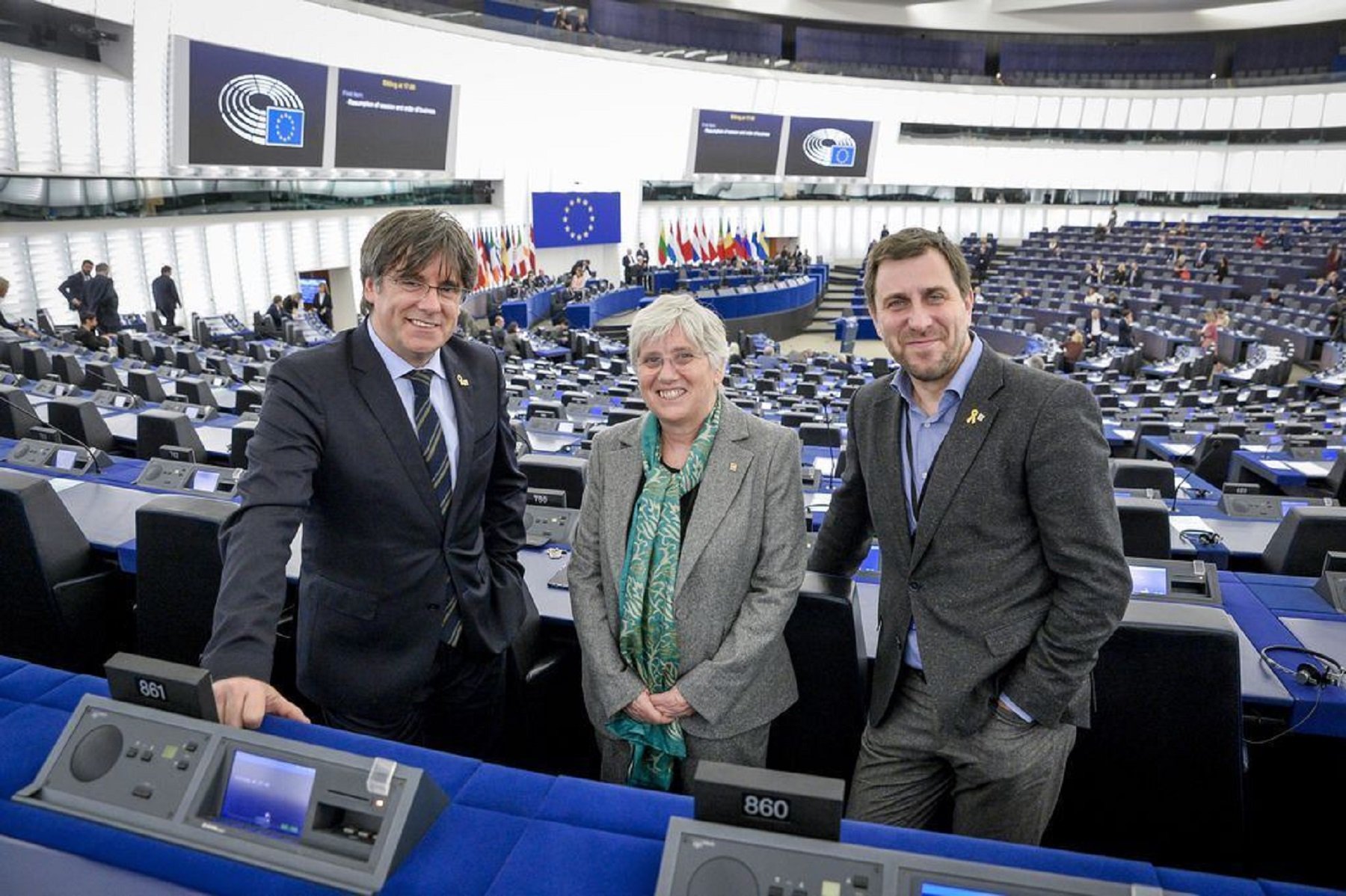The president of the European Parliament, Roberta Metsola, has asked Spain's Central Electoral Commission (JEC) to confirm whether Catalan pro-independence MEPs Carles Puigdemont, Toni Comín and Clara Ponsatí, all of the Junts party, and Jordi Solé, of ERC, are on the list of 59 people proclaimed to have been elected in the European elections in 2019, after the EU chamber's Committee on Legal Affairs was unable to verify the credentials of the MEPs. As reported by EFE, the JEC has received the letter sent by Metsola and says it will be answered next Thursday in a scheduled meeting, in which the Commission is expected to analyze this legal situation, which is "complex", since, as they note, the Spanish electoral law (LOREG) establishes compliance with the Constitution as a requirement.
Credential verification
However, what the members of the JEC, and above all the European institutions, also know is that a landmark ruling by the European Court of Justice (ECJ) in December 2019, centred on the case of Oriol Junqueras, stated that regardless of such national credential requirements, MEPs are deemed to have been elected to their posts from the moment that the official election results are announced. It was on this basis that Puigdemont and Comín, later followed by Ponsatí, were able to take up their seats in the European Parliaments. Up till then, the JEC had asserted - and the European Parliament had accepted - that, although the Catalan politicians had been victorious in the election, they were not able to be MEPs due to their failure to attend the Congress of Deputies to swear or promise on the Spanish Constitution, as they were already in exile.
Six months after the 2019 election, following the ECJ ruling, the European chamber recognized the seats of Puigdemont and Comín, and the same happened with Ponsatí, who shortly after occupied one of the seats left vacant by the British MEPs with the enactment of Brexit. In the case of Jordi Solé, there is a difference: he is not in exile, but rather, simply assumed the seat without swearing on the Spanish Constitution; on the other hand, he did present himself to Congress. However, it seems that the JEC has not delivered his documentation either.
The European Parliament has thus not managed to complete the process of verifying the credentials of these MEPs because it did not receive the relevant notification and documentation from the JEC, so they do not meet the national legislation requirements for taking a seat in the chamber. Although EU justice has ruled that these national requirements are secondary to the entitlement to hold a parliamentary seat, the lack of documentation was sufficient for the EU chamber's Committee for Legal Affairs, under Spanish chairperson Adrián Vázquez (Ciudadanos), to decide on May 18th to request the president of the Parliament to formally ask the JEC to send a notification and documentation for the verification of credentials or, in case this was not possible, "the explanation of its absence and the consequences that derive from it".
Options for the Catalan MEPs
The JEC will meet next Thursday to discuss this matter, which leads to an unprecedented situation in the history of the European chamber, as it leaves the status of these four MEPs in the air and - despite the European justice ruling providing an ultimate guarantee - they are again dependent on the immediate interpretation made by the Spanish electoral body. Moreover, Spain's Central Electoral Commission is an organ which has conducted several long and controversial battles against the electoral aspirations of Catalan pro-independence politicians since 2017, facing repeated allegations of politicization.
Some European parliamentary sources, quoted by EFE, state that the four MEPs might "lose prerogatives attached to their position", such as their salaries or their right to vote, or to hold their seat temporarily. Another option, according to the same sources, is that their seats might be listed as vacant, in which case it could correspond to the following members of their 2019 electoral lists.

